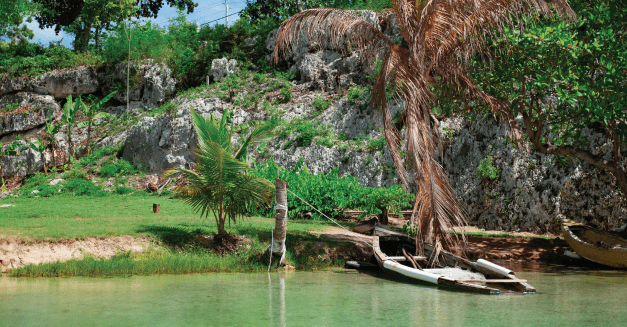New Promise for Authentic, Safe and Seamless Jamaican Visits
Clear blue water, soft sand, and salty air make destinations in the Caribbean irresistible for travelers. Jamaica’s high-quality, sustainable resorts give it an edge as a top tourist destination, and to remain competitive, the country is striving to deliver high-value experiences to visitors beyond its many resorts.

Committed to continued tourism improvement, the Government of Jamaica’s Ministry of Tourism (MOT) has partnered with the George Washington University International Institute of Tourism Studies (GWU IITS) and developed a national tourism Destination Assurance Framework and Strategy (DAFS), the first of its kind in the Caribbean. The DAFS was accomplished through an extensive participatory planning process facilitated by GWU IITS that engaged nearly 300 stakeholders from the public, private and third (civic) sectors and spanned eight months. It is now under review by the Cabinet.
Destination assurance is Jamaica’s brand promise to visitors for an authentic, safe and seamless experience respectful of communities and the environment. The ultimate goal of destination assurance is increasing visitor satisfaction–crucial to the long-term success of the tourism industry.
Hon. Edmund Bartlett, Tourism Minister of Jamaica, asserts that destination assurance is “a promise to visitors that assures an authentic, safe and seamless experience, which is respectful to the community and environment,” and that the DAFS “aims to ensure that the integrity, quality and standards of Jamaica’s tourism product are maintained.” While destination assurance was incorporated in the country’s tourism model in the past, Bartlett noted that the current specialized framework and strategy was created “to better meet the needs of the GEN-C travelers who have a vested interest in unique experiences which are safe”.
The new plan is for individual businesses as well as the overall destination. At the business level, licensing will be streamlined in order for more businesses to attain licenses and operate under safe, legal practices. The plan offers suggested voluntary business standards within a quality management system, destination assurance, and product development.
A national system for certifying business sustainability is also encouraged in the plan so tourists can identify businesses that are making an effort to be more sustainable. Once the National Destination Assurance Programme is enacted for tourism businesses, it can be expanded to include the certification of local destinations.
The development of regional destination management organizations (DMOs) are part of the plan and can help tackle infrastructure and security issues to ensure seamless and safe transit around Jamaica. Many Caribbean destinations have been historically perceived as unsafe outside resort walls. By enacting the assurance plan at the national and destination level, Jamaica intends to eliminate its inclusion in that narrative.
While a majority of the new standards are advisory and voluntary, the plan makes a persuasive case that actions stemming from the DAFS standards will put Jamaica and its businesses in a stronger strategic and competitive position in the Caribbean. When these new standards take effect, they will make Jamaica safer for visitors. Jamaica’s success in coordinated efforts to achieve greater destination assurance will result in travelers eager to visit the country beyond its resorts and enjoy Jamaica’s rich culture and engaging communities.

